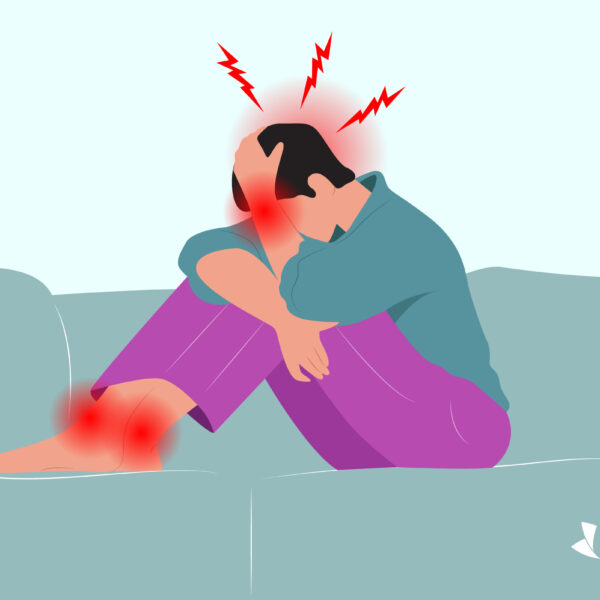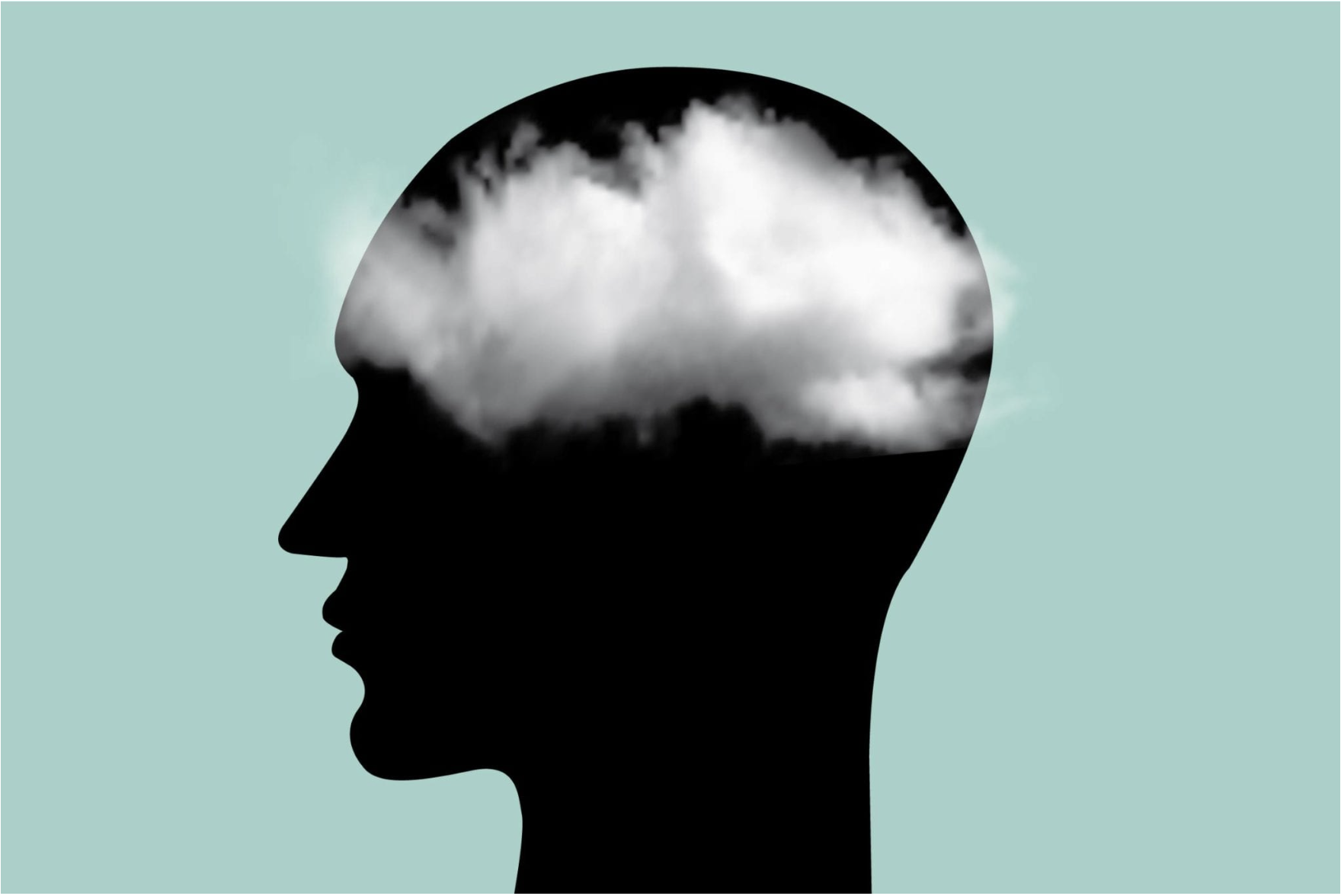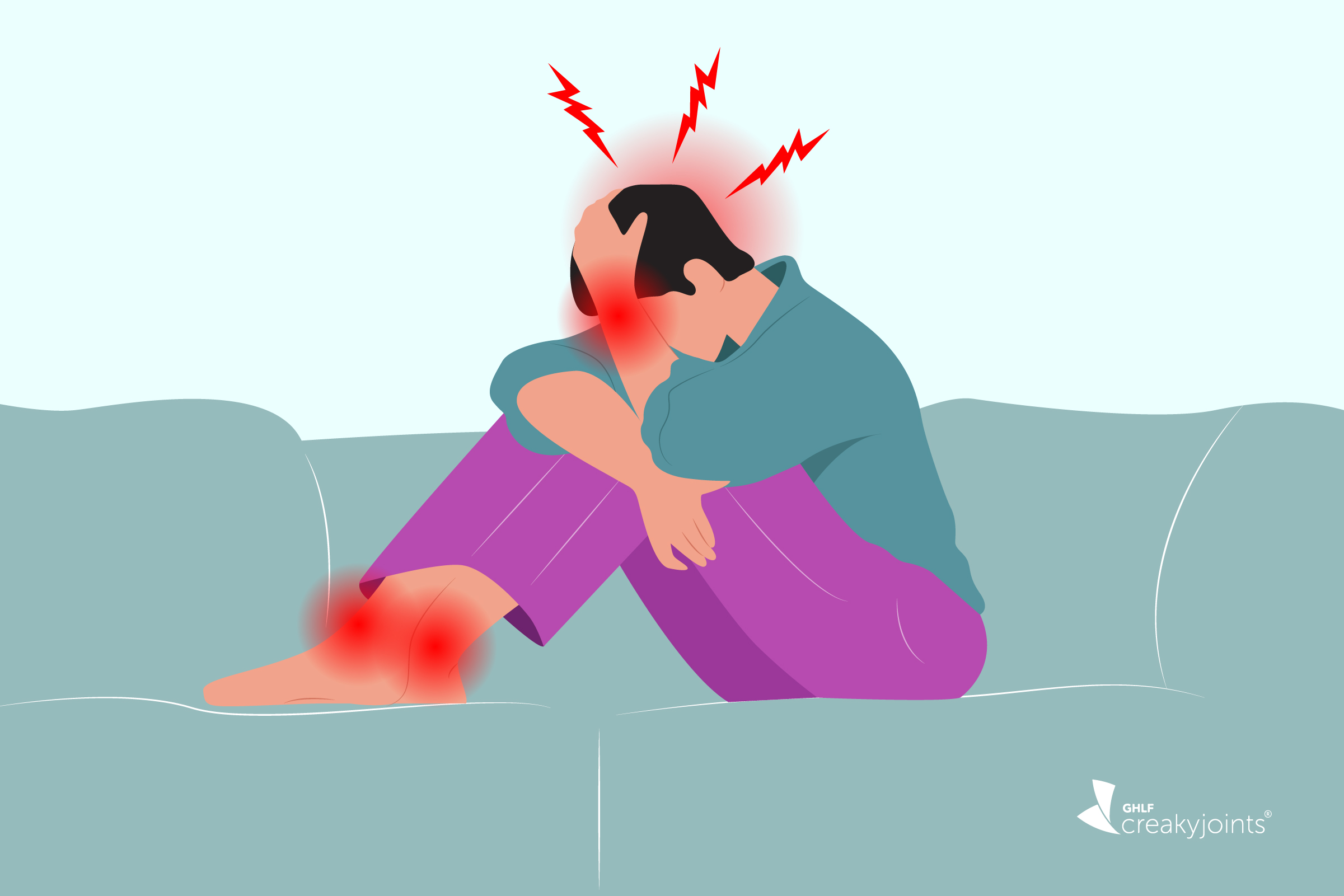Migraine, Depression, and Anxiety: What You Need to Know
Migraine, Depression, and Anxiety: What You Need to Know

When you live with migraine, it can take a mental toll due to pain, guilt over missed work, missed social events, sleep interruptions, stigma, etc. Unfortunately, stress can exacerbate such chronic conditions like migraine, so it can feel like a losing battle trying to navigate these interconnecting health challenges.
“When I first started experiencing migraine attacks, I was a junior in high school. My anxiety tended to spike during my AP English Language class and that’s when I noticed my migraine attacks largely occurred,” says migraineur, Kelsey Feng, who is based in Southern California.
Feng’s experience of navigating migraine following a spike in anxiety is well-validated by the research, as migraine is often impacted by issues like anxiety, depression, and panic attacks.
How Migraine Impacts Mental Health
As a neuroscience coach and somatic practitioner, I always remind my clients about the brain-body connection and that 2/3 of all physical pain has an emotional root, says Renetta Weaver, LCSW-C, a clinical social worker. “As a mental health therapist, my work is educating clients about the significance of working to maintain their mental health and wellness.”
A 2017 study published in the Journal of Pain Research found that migraine-associated stress was associated with the first onset of symptoms and symptoms per month, so the stress from frequent migraine headaches may contribute to a cyclical relationship whereby stress is both a cause and effect of the social and medical challenges related to migraine.
“A few years later, I was diagnosed with depression as well,” explains Feng. “In 2021, my migraine attacks exponentially increased from two to three a month to daily attacks. When this happened, my depression was pretty bad. I felt completely alone and really struggled with dealing with the newfound debilitating nature of my disability.”
Especially since Feng did not actually receive a migraine diagnosis for eight years, it was challenging in the beginning, but they now feel less alone since finding the disability community.
Can Migraine Cause Depression?
Migraine can cause and exacerbate depression, so it is unsurprising that depression is linked to migraine, says Weaver. “What you might not know is that research suggests the symptoms of depression are heavily represented by over or under eating, lack of sleep, and fatigue more so than hopelessness and sadness.”
A 2015 study published in the International Journal of Behavioral Medicine found that individuals with migraine who had lower levels of pain acceptance and decreased engagement in valued activities may experience greater overall distress and greater disability.
“It took me eight years to receive a migraine diagnosis despite regularly going to doctor’s visits and check-marking headaches as an issue on their paperwork,” says Feng, who finally went off from their job on short-term disability in April 2022 to take care of their health.
By that time, every aspect of their life had changed, including their personal, social, and especially their work life. They share how they went from being one of the top performers in their department, to being asked “when’s the old Kelsey coming back?”
Since eventually going on disability because the pain was unbearable, Feng continues to wonder if they might have been able to prevent that outcome had they managed to get appropriate treatment prior to 2021 to prevent this chronification of migraine challenges.
Can Migraine Cause Anxiety?
A 2017 study published in The Journal of Headache and Pain found that anxiety and its symptoms had a stronger association with migraine than depression, with the ability to control worry and relaxation as the most prominent challenges in navigating migraine and anxiety.
“Anxiety symptoms are even greater than depression in migraine sufferers,” explains Weaver. “In fact, research findings reveal that anxiety is up to 10 times more prevalent in those who experience migraine than the general population.”
How Mental Health Impacts Migraine Treatment
A 2018 study published in the journal Pain Medicine found that less than a third of eligible patients were referred for behavioral migraine treatment, and only about half initiated that following a headache specialist recommendation, with patients who had seen a psychologist for migraine more likely to initiate such behavioral migraine treatment than those who had not.
In her work, Weaver educates clients that mental health impacts migraine treatment in the way that stress and depression affect the pain receptors, thus intensifying and prolonging a migraine, as she notes that challenges may include expensive treatment, adverse side effects, etc.
“When patients feel seen, acknowledged, accepted and understood by their providers, this increases the likelihood that they will feel more accepting of themselves,” says Weaver. “Self-acceptance helps to regulate mood and increase motivation to engage in treatment.”
Unique Challenges BIPOC Communities Face
A 2018 study published in the journal Psychological and Behavioral Aspects of Headache and Pain found significant disparities in migraine among marginalized and underserved groups, like Black and Hispanic individuals, people experiencing multiple marginalized identities, etc.
“I don’t know if my lack of expressive body language, my appearance as a short femme East-Asian person, or what caused multiple doctors to disregard years of migraine attacks,” says Feng. “Due to this, I had gaslit myself that all this time I was just being dramatic and couldn’t handle pain well, despite having multiple tattoos with no issues. My roommate was the one who pointed out that it wasn’t normal to not be able to function while having a headache.”
Since these same groups are largely underrepresented in migraine research, despite bearing disproportionate burden, there is the risk of an essentializing approach. In this way, providers may document differences between groups who share a race, income, or education level, rather than considering the underlying social and structural determinants of health.
This is why Weaver says that more research is needed to accurately understand the effects of the health care disparities on marginalized populations.
“Mental health and migraine are inherently interconnected. Having either will increase your likelihood of getting the other,” says Feng. “I was privileged enough to get access to the care I needed due to access to private insurance, access to transportation, location, funds to pay for care, etc. My experience does NOT even begin to highlight the surface of issues faced by others in the BIPOC population.”
Treatment and Coping Strategies
Managing your mental health will likely require a well-rounded approach that may include therapy, medication, and healthy lifestyle habits.
Weaver recommends Cognitive Behavioral Therapy (CBT) as an effective treatment approach as it can include mindfulness meditation, progressive muscle relaxation, 4-square breathing, etc., which may allow the body to release mental and physical stress and pain.
“Psychoeducation about the value of these practices are beneficial for clients,” says Weaver. “Clients are always more invested in a prescribed treatment if they understand the why.”
Other treatment and coping strategies to consider:
- Discuss medication: There are a number of different antidepressants and anti-anxiety medications available, however your doctor will first need to consider the medications you’re already taking as well as other health problems.
- Get moving. Exercise is often a first-line treatment for mild to moderate depression, and if you exercise outdoors, even better as you’ll get an extra mood boost from vitamin D. Speak with your doctor before starting an exercise program.
- Seek support. Emotionally, migraine can make you feel isolated and misunderstood, particularly if you don’t know anyone living with the condition. This is why it’s important to reach out to others and join an online or in-person support group made up of those who know exactly what you’re going through.
Get Mental Health Support
We understand how difficult it can be to cope during these uncertain times, especially when you are living with chronic illness. It is important to talk to someone who can help. You should contact your primary care physician or your insurance provider to learn about the supportive resources that are available to you. Here are other mental health resources for your reference:
- To find local support groups and services, you can call 1-800-950-NAMI (6264) or email [email protected]. The National Alliance on Mental Illness HelpLine can be reached Monday through Friday, 10 AM to 6 PM ET.
- For a counselor or therapist in your area, view the resources page at Mental Health America: Finding Therapy.
- If your mental health concern is an emergency for you or someone else, you should call 911.
- If you are having suicidal thoughts or have or are thinking of hurting yourself, you should call the National Suicide Prevention Lifeline’s 24-hour toll-free crisis hotline, 1-800-273-TALK (8255).
Download the Migraine Patient Guidelines
Vetted by both medical experts and people living with migraine disease, our Migraine Patient Guidelines offer clear, trusted information to make sense of all the treatment choices for migraine disease. Learn about the latest treatment options, get support for coping with migraine stigma at work and in your personal relationships, and learn more about how to be a migraine patient advocate. Learn more here.
Sources:
Befus, Deanna R. et al. A Critical Exploration of Migraine as a Health Disparity: The Imperative of an Equity-Oriented, Intersectional Approach. Current Pain and Headache Reports. October 2018. doi: https://doi.org/10.1007/s11916-018-0731-3.
Dindo, Lilian et al. Depression and Disability in Migraine: The Role of Pain Acceptance and Values-Based Action. International Journal of Behavioral Medicine. February 2015. doi: https://doi.org/10.1007/s12529-014-9390-x.
Interview with Renetta Weaver, LCSW-C, a clinical social worker .
Malone, Christopher et al. Migraine: Treatments, Comorbidities, And Quality of Life, In The USA. Journal of Pain Research. June 2015. doi: https://doi.org/10.2147/jpr.s88207.
Minen, Mia T et al. Factors Related To Migraine Patients’ Decisions To Initiate Behavioral Migraine Treatment Following A Headache Specialist’s Recommendation: A Prospective Observational Study. Pain Medicine. November 2018. doi: https://doi.org/10.1093/pm/pny028.
Peres, Mario Fernando Prieto et al. Anxiety And Depression Symptoms And Migraine: A Symptom-Based Approach Research. The Journal of Headache and Pain. March 2017. doi: https://doi.org/10.1186/s10194-017-0742-1.





